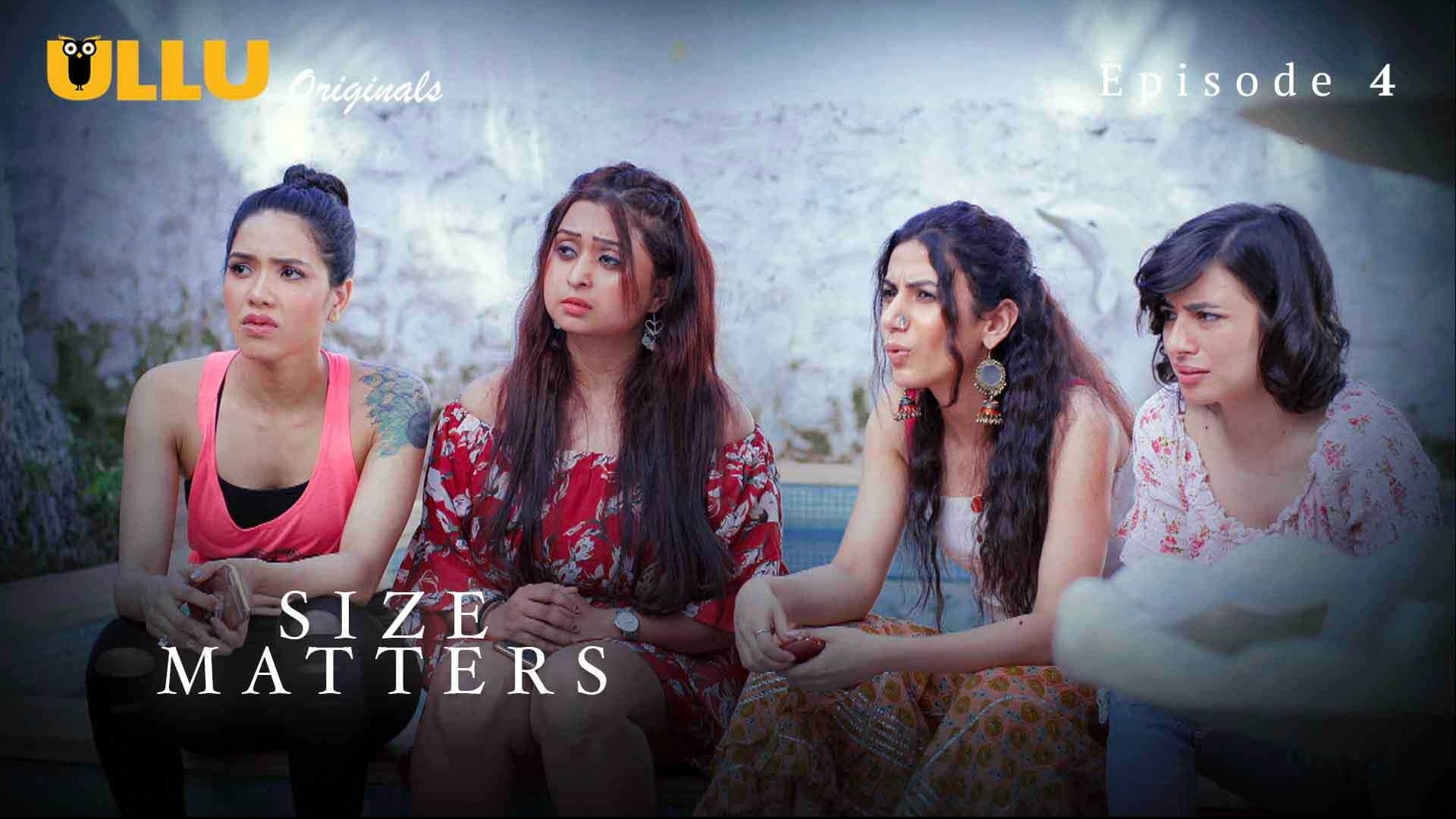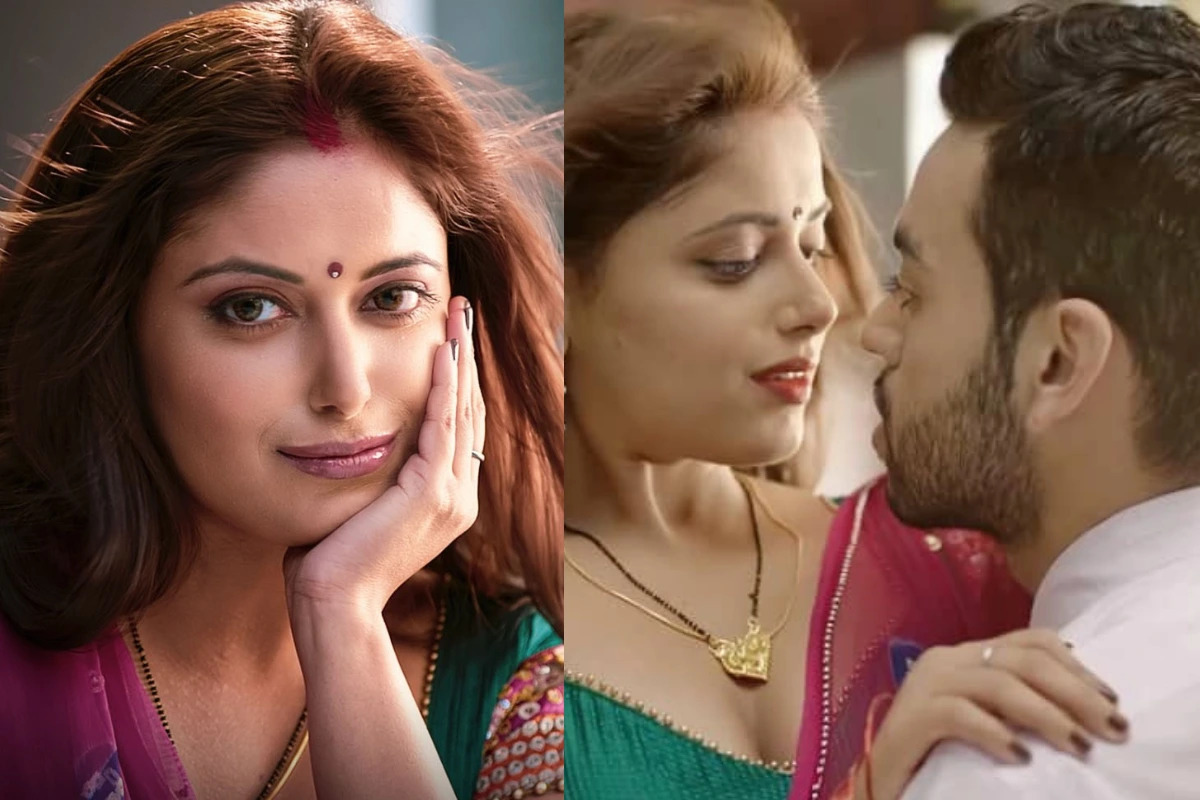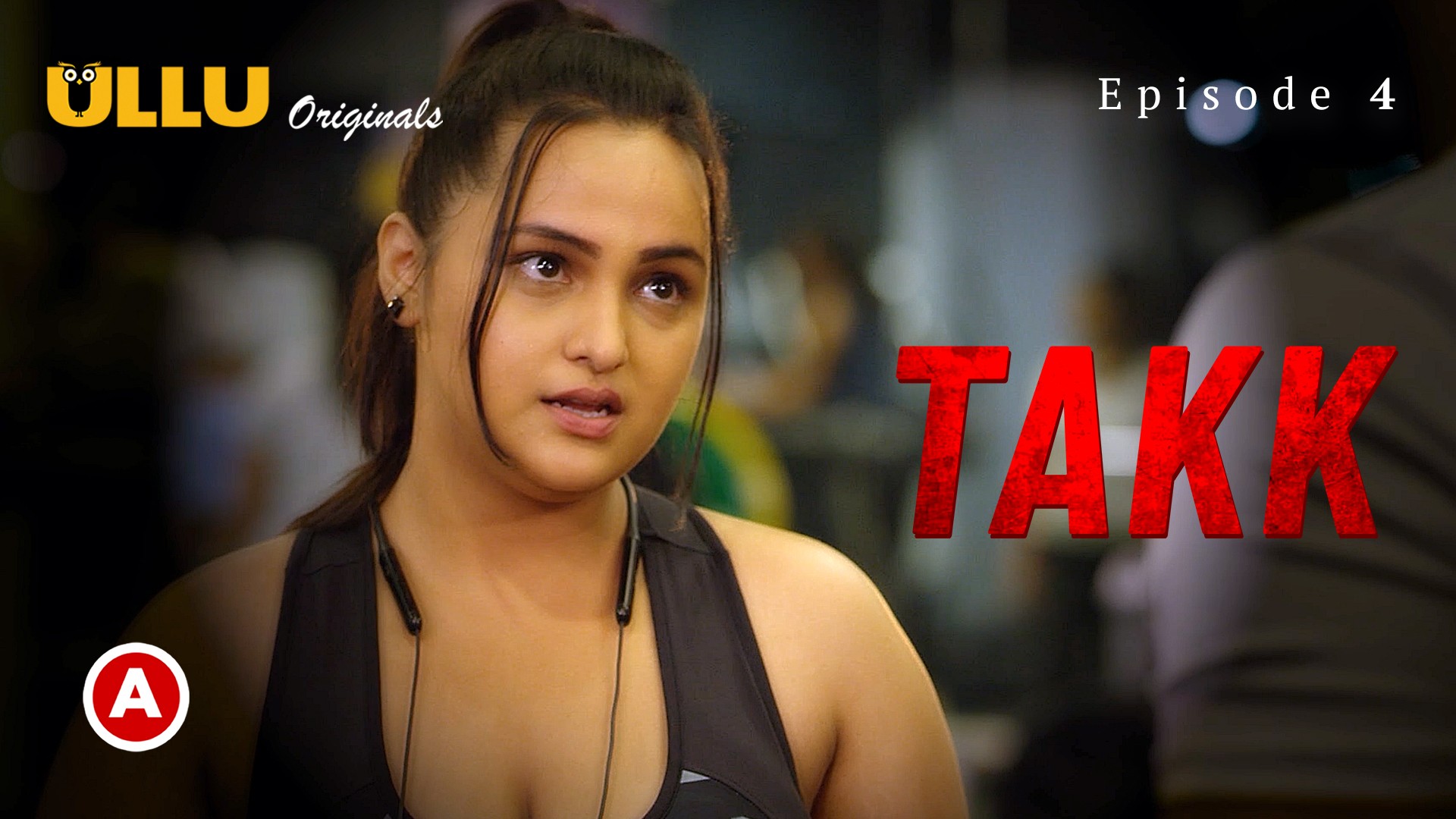Finding Uncut Ullu: What Viewers Seek In Original Digital Content
Have you ever been watching a show or a movie and felt like something was missing, or perhaps you heard about a different version of it? It happens quite a lot, actually. People often look for the most complete or original versions of their favorite digital content. This quest for authenticity, or what many call "uncut" versions, is a pretty common thing in the world of online entertainment, and it speaks to a deeper desire for the full story, just as it was meant to be seen.
When folks search for "uncut ullu," they are, in a way, expressing a wish to get closer to the source material. It's about wanting to see everything that the creators put into their work, without any edits or changes made for broadcast or other reasons. This kind of search shows how much people value the original vision behind a piece of media, which is, you know, really something to think about.
So, we're going to explore what "uncut" really means in the context of digital content, why viewers are so interested in finding these versions, and how this fits into the bigger picture of how we all consume entertainment today. It's a pretty interesting topic, especially with all the streaming options out there, as a matter of fact.
Table of Contents
- Understanding "Uncut" in Digital Media
- The Digital Content Scene and Viewer Expectations
- Navigating Content Choices
- Frequently Asked Questions About Uncut Content
- Staying Informed About Digital Media
Understanding "Uncut" in Digital Media
The term "uncut" has been around for a while in the entertainment world, long before the internet made everything so accessible. It usually points to a version of a film, a TV show, or even a song that includes all the material originally shot or recorded. This means bits that might have been taken out for various reasons, like time limits, broadcast standards, or even just to make the story flow a bit differently, are put back in. So, when people look for "uncut ullu," they're tapping into this long-standing idea of wanting the whole picture, you know?
What Does "Uncut" Truly Mean?
When we talk about something being "uncut" in today's digital landscape, it means a lot of things, really. For one, it could mean a director's cut, which is the version the director originally intended for release, sometimes with scenes or dialogue that were later removed. It might also refer to a version that hasn't been edited to fit specific broadcast regulations or public sensibilities. Basically, it's about getting the most complete version of a piece of media, which, for many, is the most genuine way to experience it. This desire for completeness is a big driver for searches like "uncut ullu," as a matter of fact.
Sometimes, an "uncut" version might simply have a few extra minutes of footage, or it could include entire subplots that were left on the cutting room floor. It's not just about what's added back in, though. It's also about the pacing and the overall feel of the content, which can change quite a bit when things are removed or rearranged. Viewers, you see, often want to see how these changes affect the story and the characters, which is a pretty natural curiosity, I think.
For platforms like Ullu, which produce a lot of original content, the idea of an "uncut" version might relate to the original production as it was filmed, before any platform-specific edits. This is often a point of interest for fans who feel a connection to the stories and the way they are told. They want to make sure they're getting the full experience, which, honestly, makes a lot of sense.
It's also worth noting that the term "uncut" can sometimes be used to suggest something is more intense or explicit, but its core meaning is simply about completeness. The focus for many viewers is on seeing the full artistic vision, whatever that might entail for a particular show or film. This distinction is really important when we talk about what people are looking for, because it's not always about sensationalism, you know?
The pursuit of "uncut" content is, in a way, a search for the definitive version. It's like wanting to read the original manuscript of a book rather than an abridged version. People want to be sure they're not missing out on any part of the story or the creative effort that went into it. This drive for completeness is a very human thing, I guess, and it shows up in how we consume all sorts of media, not just "uncut ullu" content.
Why Viewers Look for Uncut Versions
People seek out "uncut" versions for a bunch of reasons, really. One big reason is simply curiosity. They might have heard that a certain scene was cut, or that the original version had a different ending, and they want to see it for themselves. It's like solving a puzzle, in a way, trying to piece together the full picture of a story. This kind of interest is what drives a lot of searches for things like "uncut ullu," you know.
Another reason is artistic appreciation. Filmmakers and show creators often have a specific vision for their work, and sometimes that vision gets altered during the distribution process. Fans who truly appreciate the art form want to see the work as the artist intended it. They feel that the "uncut" version offers a more authentic and complete artistic experience, which, honestly, is a pretty valid point of view.
Then there's the feeling of exclusivity. Finding an "uncut" version can feel like you're getting access to something special, something that not everyone gets to see. This can add to the viewing experience, making it feel more personal and unique. It's a bit like finding a rare collector's item, if you think about it, and that can be a real draw for people looking for "uncut ullu" content.
Also, sometimes cuts are made for practical reasons, like fitting a broadcast slot or avoiding certain ratings. Viewers might feel that these edits detract from the story's impact or emotional depth. They might believe that the original, longer version provides a richer, more immersive experience. This desire for an uncompromised narrative is a strong motivator for many, which, you know, is totally understandable.
For some, it's about getting the full context. A scene that seems out of place in a cut version might make perfect sense when viewed with the surrounding footage that was removed. This can really change how a viewer understands the characters' motivations or the plot's developments. So, the search for "uncut ullu" often comes from a wish to fully grasp the story, which is a pretty common goal for any avid viewer, I think.
The Digital Content Scene and Viewer Expectations
The way we watch shows and movies has changed so much, hasn't it? With so many streaming services and platforms, people have more choices than ever before. This new landscape has also changed what viewers expect from their entertainment. They want convenience, variety, and very often, they want the real deal, the complete versions of things. This shift in expectations is really important when we talk about searches for "uncut ullu," for example.
How Content is Made Available
Content creation and distribution are pretty complex processes, actually. A show or film goes through many stages, from writing and filming to editing and then finally being released to the public. At each stage, decisions are made about what makes it into the final version. Sometimes, different versions are created for different markets or platforms, which can lead to variations in what viewers see. This is why the idea of an "uncut" version even exists, you know.
Digital platforms, like the one associated with "uncut ullu," have their own ways of delivering content. They might have specific guidelines for what they show, or they might offer different subscription tiers that provide access to different kinds of content. This means that what you see on one platform or through one subscription might not be the exact same as what's available elsewhere, which can be a bit confusing for viewers, honestly.
The sheer volume of content being produced today also plays a part. With so many new shows and films coming out all the time, creators and distributors are always looking for ways to make their content stand out. Offering different versions, like an "uncut" one, can sometimes be a way to appeal to a specific audience or to generate extra interest. It's all part of the very dynamic world of digital media, you see.
There are also licensing agreements and regional restrictions that can influence how content is made available. A show might be available in its full form in one country but only in an edited version in another. This adds another layer of complexity for viewers who are trying to find a specific version, like the "uncut ullu" they might be looking for. It's a global marketplace, and that brings its own set of challenges, you know.
Ultimately, the way content reaches our screens is a result of many factors, including creative decisions, business choices, and regulatory considerations. Understanding these processes helps explain why different versions of the same show or film exist, and why viewers often go searching for a particular cut. It's a pretty intricate system, as a matter of fact.
The Role of Streaming Platforms
Streaming platforms have really changed the game for how we watch things. They've made it possible to access a huge library of content right from our homes, or anywhere with an internet connection. These platforms, including those where people might seek "uncut ullu" content, play a big part in shaping what we see and how we see it. They curate content, sometimes produce their own, and decide how it's presented to their subscribers, you know.
Each platform has its own approach to content moderation and presentation. Some might offer a single version of a show, while others might provide options, like a "theatrical cut" and a "director's cut." This variety is part of what makes the streaming world so rich, but it also means that finding a specific "uncut" version can sometimes require a bit of searching. It's not always just a click away, which can be a little frustrating for some viewers, honestly.
The business models of these platforms also influence what content they acquire and how they present it. They might focus on family-friendly content, or they might cater to niche audiences with very specific interests. This specialization can sometimes lead to platforms offering more complete or original versions of content that aligns with their audience's preferences. It's all about matching content to viewers, you see.
Streaming services are also constantly updating their libraries and sometimes even re-releasing content with new features or versions. This means that an "uncut" version that wasn't available before might suddenly appear, or vice versa. Keeping up with these changes can be part of the fun for dedicated fans, who are always on the lookout for the latest and most complete versions of their favorite shows, like those on platforms where "uncut ullu" might be a search term.
So, the role of streaming platforms is pretty central to the discussion of "uncut" content. They are the gatekeepers and the providers, and their policies and offerings directly impact what viewers can find and watch. They really shape our digital viewing habits, which is a pretty significant thing, I think.
User Desire for Original Content
There's a very strong desire among viewers to experience content as it was originally conceived. This isn't just about being a purist; it's about wanting to fully appreciate the creative work. When someone searches for "uncut ullu," they are, in a way, looking for that pure, unadulterated form of storytelling. They want to see the narrative exactly as the writers and directors intended, without any external influences changing it, you know.
This desire for originality comes from a place of respect for the artists and their craft. Viewers often feel that if a scene or a plot point was important enough to be filmed, it's important enough to be seen. They want to understand the complete artistic statement, which can be quite powerful. It's a way of connecting more deeply with the story and the people who brought it to life, which is pretty cool, honestly.
Also, in an age where so much content is available, having access to "original" or "uncut" versions can feel like a premium experience. It sets certain content apart and makes it more valuable to the viewer. This perceived value drives a lot of interest and searches, like those for "uncut ullu," because people are always looking for that extra something that makes their viewing unique, you see.
For many, the appeal of "original content" also lies in its authenticity. They want to feel like they are getting the real story, not a watered-down or altered version. This quest for authenticity extends beyond just content, too; it's a broader trend in how people engage with information and entertainment today. They want genuine experiences, and that often means seeking out the source material, which, you know, is a very natural inclination.
Ultimately, the user's desire for original content reflects a deeper appreciation for creative integrity and a wish to engage with stories in their most complete form. It's a testament to how much people care about the media they consume, and it shapes the demands they place on content providers, which is a pretty important dynamic, I think.
Navigating Content Choices
With so much digital content out there, figuring out what to watch and where to find it can sometimes feel a bit overwhelming. People are constantly making choices about their entertainment, and often, they're looking for something specific. This is where the search for "uncut" versions, like "uncut ullu," fits in. It's about making informed decisions about your viewing experience and getting exactly what you want, you know.
Finding What You Want
When you're looking for a particular kind of content, like an "uncut" version of a show, it often involves a bit of searching. This might mean checking different streaming platforms, looking at fan forums, or reading reviews to see if an alternative version exists. It's about being a bit of a detective, really, trying to track down that specific cut you're interested in. This kind of focused search is pretty common for dedicated viewers, as a matter of fact.
The key to finding what you want is often knowing where to look and what to ask for. If you're searching for "uncut ullu," for instance, understanding what that term implies for that specific platform or type of content helps narrow down your search. It's about using the right keywords and knowing which sources are reliable for information about different content versions, which can save you a lot of time, you know.
Sometimes, content creators or distributors will openly advertise if an "uncut" version is available, especially if it's a director's cut or a special edition. Keeping an eye on official announcements or bonus features can be a good way to discover these alternative versions. It's like being in the know, which is something many viewers appreciate, honestly.
Community discussions can also be a goldmine of information. Fans often share details about different cuts of shows and films, including where they can be found or what makes them unique. Engaging with these communities can provide valuable insights and help you pinpoint exactly what you're looking for.

Ullu App Web Series Uncut: A Complete Guide To The Popular Streaming

Top Ullu Web Series Videos 2024: Must-Watch!

Hot Ullu Web Series Actress Names: A Complete Guide To Rising Stars